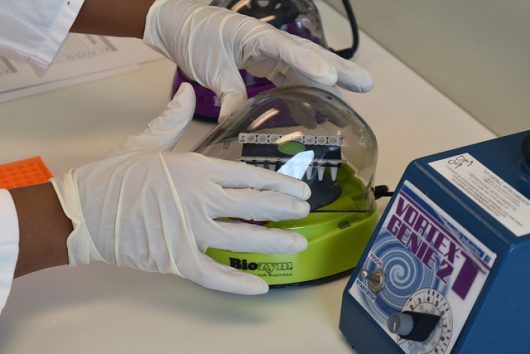New Study: Zika Virus Kills Cancer Cells

To most, “Zika virus” is synonymous with “devastation.” Here is a quick summary of Zika’s recent global impact:
- Between January 1, 2007, and April 6, 2016, 62 nations and territories reported Zika virus transmission.
- Zika Virus brought widespread infection to the Regions of the Americas in 2015.
- The most recent outbreak indicated by the World Health Organization occurred in India in May 2017.
- Based on initial research, the scientific community concedes that Zika virus is a cause of microcephaly and Guillain-Barré syndrome.
- No vaccines or treatment exist for the mosquito-borne Zika virus.
What positive news related to this devastating threat could possibly exist?
In a startling new study, the Washington University School of Medicine—in conjunction with the University of California San Diego School of Medicine—assert that Zika virus kills cancer cells in adult human brains. The Journal of Experimental Medicine published the results in a report in early September. It posits that injecting the Zika virus into the brain at the same time as surgery could potentially remove life-threatening tumors.
The Zika virus attacks malignant brain tumors called glioblastomas. Glioblastoma is one of the most challenging cancers to treat. The conventional treatment is brain surgery followed by radiation and rounds of chemotherapy within 2 to 4 weeks after surgery. Follow-up procedures must begin as soon after surgery as possible, as new glioblastomas can generate rapidly. Frequent patient observation with magnetic resonance imaging (MRI) or computed tomography (CT) scans is another vital element of ongoing medical care.
Still, most tumors reappear within six months. A small population of cells, called glioblastoma stem cells, often survives the treatments and continues to divide, producing new tumor cells to replace the ones killed by the cancer drugs. Glioblastoma stem cells are hard to kill because they can avoid the body’s immune system and are resistant to chemotherapy and radiation. However, researchers believe that the Zika virus kills cancer cells, preventing new tumors from recurring after surgically removing the original tumor.
Despite such aggressive treatment, glioblastoma cells remain deadly: most patients die within 15 months. According to the American Association of Neurological Surgeons, nearly 52 percent of all primary brain tumors are glioblastomas. Each year in the United States, this widespread form of brain cancer affects approximately 12,000 people. U.S. Sen. John McCain announced he is battling with glioblastoma in July 2017.
The Washington University – University of California San Diego School experiment revealed that the Zika virus favored destroying glioblastoma stem cells over normal brain cells in mice. Two weeks later, the mice with Zika virus injected into their cancerous tumors exhibited smaller tumors than those without the virus. Mice with Zika virus injected into their brain tumors seemed to survive longer than those without the injections.
Despite differences in the biological systems of mice and humans, the research team believes their proposal the Zika virus kills cancer cells merits pursuing. The joint research team hopes to begin human trials in the next 18 months.
According to Michael S. Diamond, MD, Ph.D., the Herbert S. Gasser Professor of Medicine at Washington University School of Medicine, “These cells are highly resistant to conventional therapies.” Diamond continued, “While the Zika virus does harm to the brains of developing fetuses, it may prove effectual in the treatment of glioblastoma in adult brains.”
– Heather Hopkins
Photo: Flickr
